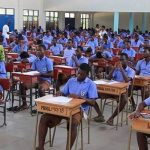A Joint Committee of the Economic Community of West African States (ECOWAS) Parliament led by Nigeria’s House of Representatives Deputy Speaker Benjamin Kalu is holding an oversight delocalised meeting in Abidjan, Ivory Coast, today.
The weeklong event, which comprises some of the parliament’s standing committees, namely, Administration, Finance, Budget, Public Accounts, Macroeconomic Policy, and Economic Research, will end on Friday.
The theme of the event is “The Role of the ECOWAS Parliament in Community Budget Formulation and Monitoring.”
The Joint Committee has been mandated to carry out vital oversight responsibilities, in line with community policy, to scrutinize and ensure the successful execution of the planned activities.
The primary goal of the delocalized committee meeting is to equip members with a comprehensive understanding of the key issues, enabling them to engage in informed parliamentary discussions and decision-making on budgetary matters.
It also aims to equip Members to carry out oversight functions over the programmes and activities of ECOWAS as mandated by the Supplementary Act on the Enhancement of the Powers of the Parliament.
It is expected that Members of the Joint Committee will be sensitized by resource persons and stakeholders drawn largely from relevant technical directorates of the ECOWAS Commission on recent developments in the sectors in focus.
Expert representatives from various organizations, including civil society groups, will present to the Joint Committee, offering diverse insights and perspectives to inform the parliamentarians’ understanding of the issues.
The Committee on Administration, Finance, and Budget is tasked with overseeing key financial and administrative matters, including the adoption of the community budget, review of the Parliament’s draft annual budget, and monitoring of financial management and administrative practices within the Parliament.
It is also responsible for assessing the effectiveness of various community financing mechanisms, notably the implementation of the protocol relating to the community levy and the coordination of various financial instruments.
The committee also has the responsibility of overseeing the execution of Parliament’s budget and assessing the cost and effectiveness of implementing community-financed policies.
Additionally, the Committee is responsible for verifying financial statements, accounts, and balance sheets related to decisions on the closure, presentation, and auditing of the Parliament’s revenue and expenditure, as well as implementing measures associated with these decisions.
According to Persecondnews, there are 115 seats in the ECOWAS Parliament, distributed among 15 member states, with a minimum of five seats guaranteed to each state, and 14 standing committees support them.
Each country’s population determines the distribution of the remaining 40 seats.
Nigeria has a total of 35 seats, followed by Ghana with eight seats.
Burkina Faso, Guinea, Mali, Niger, and Senegal each have six seats, while Côte d’Ivoire has seven.
The seven remaining ECOWAS Member States, consisting of Benin, Cape Verde, The Gambia, Guinea-Bissau, Liberia, Sierra Leone, and Togo, are each allocated five seats in the Parliament.






















Leave a comment